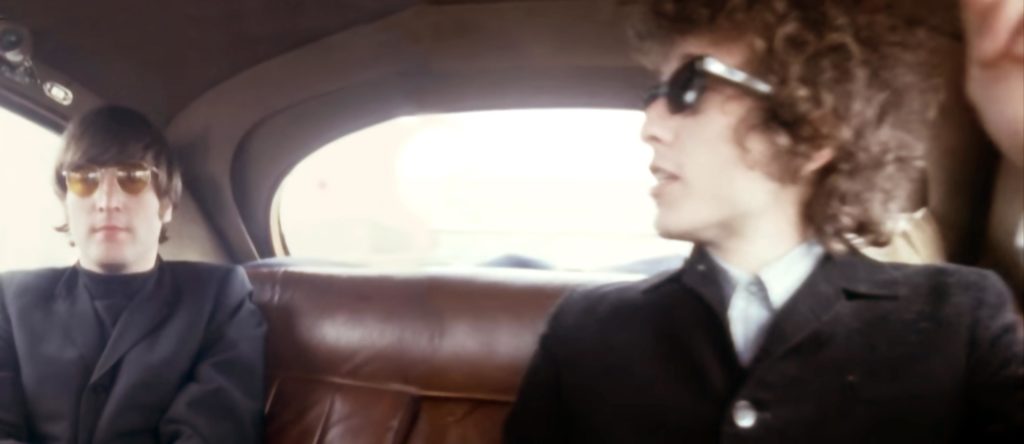Imagine no possessions

The confluence of the 40th anniversary of John Lennon’s murder with the news that Bob Dylan has sold the rights to all his songs to Universal for a reported $300 million leaves me with an odd feeling.
Like countless other people, Dylan’s music has meant a great deal to me for a very long time. I’m a tail end baby boomer, and I really discovered him as a more depressed than average teenager in 1975, when I acquired a copy of Blood on the Tracks, which I probably played 3,000 times in its entirety on my family’s stereophonic phonograph system.
It’s funny how this kind of thing works, but in 1975 Dylan was, to a high school kid anyway, an “old” musician who used to be a big deal a long time ago (the 1960s), but who was now something of a relic of that distant past, so being entranced by new music from him somehow created a sensation that could be called nostalgia for the present. (Nostalgia For the Present would be a good title for a Bob Dylan album).
Anyway, over the next few years I discovered the music of his classic period, and it and he have been there/here ever since, for me and (hundreds of?) millions of others.
All of which is to say that I would rather see Bob Dylan cash in on $300 million worth of New Gilded Age lucre than just about any other prominent person.
Still. There’s something about seeing a central figure of the 1960s counterculture acting like any other prudent capitalist maximizer of his utility that doesn’t set well. I realize of course that it would be banal and ridiculous to reduce people like Dylan and Lennon to politically symbolic figures, and anyway it’s stupid to look for political wisdom from artists you admire.
And yet, there was a politics of the countercultural art of the 1960s, as confused and contradictory and hypocritical as it often ended up being. I don’t think it’s OK, really, for Bob Dylan to have $300 million not because he’s Bob Dylan, but because it’s not OK for any single person to have anything like that much money. (As I’ve pointed out before, one thing that keeps are plutocrats from ending up hanging upside down at an Esso station is that people can’t do math. $300 million, while an unimaginably vast sum of money, is still about 600 times smaller than Jeff Bezos’s current net worth).
Here’s a question which has become almost impossible to imagine asking in our current world: how much of a wealth gap between people in a society is endurable while still maintaining minimal standards of social justice? Ten to one? 50 to 1? 600 to 1? It seems to me at least that 600 to 1 is way, way too big of a number to allow that question to be answered in the affirmative, and yet 600 to 1 is the gap between Bob Dylan, unimaginably wealthy person, and Jeff Bezos, who is unimaginably wealthier than an unimaginably wealthy person.
This, I think, is the single most important question that needs to be asked within anything that conceives itself even vaguely as a politics of the left. And yet we are at a point where the question itself has become almost impossible to imagine, let alone answer.


